Avoiding Liens in Chapter 7 Bankruptcy
Many types of debts can be eliminated through bankruptcy, however, if a creditor has put a lien on your property, you still could lose it. How so? The discharge—an order that cancels qualifying debt—does not get rid liens, and liens give property rights to your creditors. The lien should be eligible for removal, and if so, you must request its release through a lawsuit or a motion. The following factors will determine if your motion or your adversary proceeding (a bankruptcy lawsuit) is successful:
- the type of lien
- when you bought the property as well as the value of the property
- whether you can use bankruptcy exemption to protect your property equity, and
- whether you declare bankruptcy under Chapter 7 or under Chapter 13.
If you are not sure if you want to file for bankruptcy or what type of chapter you want to file, start by speaking with a Mississippi bankruptcy lawyer to help you decide.
The Rollins Law Firm’s Jackson bankruptcy attorneys help Mississippi residents who are experiencing financial difficulties or are considering filing for bankruptcy. We understand what is at stake for you and what you believe you are risking by considering bankruptcy.
If you hire us, we’ll lay out all of your options and advise you on the course of action we think is best. Contact one of our Bankruptcy Lawyers in Jackson, Ridgeland, or one of our other Mississippi bankruptcy offices immediately to start your journey to a fresh start in life!
Avoiding Liens in Chapter 7 Bankruptcy: What is a Lien?
 In general, a lien is a legal document granting a creditor the right to repossess a debtor’s property if they fail to make a loan or debt payment. By placing a lien on a borrower’s property, a lien helps ensure that they will ultimately pay off their debt or else run the risk of losing the property to the lender or creditor. There are several types of liens, but one, in particular, stands out whenever it comes to filing bankruptcy.
In general, a lien is a legal document granting a creditor the right to repossess a debtor’s property if they fail to make a loan or debt payment. By placing a lien on a borrower’s property, a lien helps ensure that they will ultimately pay off their debt or else run the risk of losing the property to the lender or creditor. There are several types of liens, but one, in particular, stands out whenever it comes to filing bankruptcy.
A Chapter 7 Bankruptcy lien, also known as a judgment lien, is a lien that attaches to the property of a debtor after a lender or creditor brings a lawsuit and obtains a monetary judgment against them. The lender or creditor can then take the debtor’s property to fulfill the money judgment.
Assume you owe a credit card company $50,000 and have slipped behind on your payments. You can be sued in court by your credit card company for those missed payments. If the credit card company wins, the court may impose a monetary judgment against you. The creditor can then use the money judgment to withdraw money from your paycheck or bank account.
If the creditor completes the lien and attaches it to your home, they will be allowed to get any money you earn from selling it in the future.
Understanding Bankruptcy Liens
A valid lien grants to a creditor a legal interest in the property. It enables the creditor to acquire the property, sell it, as well as use the funds to pay off the outstanding debt.
The debtor may agree to the lien in some cases, but not in all, and that is important in bankruptcy. A debtor cannot discharge a statutory or voluntary lien in Chapter 7, only a judgment lien (with a few exceptions).
- Voluntary liens. Creditors want assurance that borrowers will repay large loans, like those for a car or a mortgage. As a result, the creditor would require the debtor to provide collateral in the form of the purchased property. If the borrower fails to meet the contract conditions, the lien would allow the creditor to repossess or foreclose the property. In the majority of cases, repossession or foreclosure is triggered by the debtor when they fail to make a monthly payment. However, other contract violations can take place.
- Involuntary statutory liens. This kind of lien is not agreed to by both the debtor and the creditor. A tax lien and a mechanics lien are two common types of involuntary liens.
- Involuntary judgment liens. A judgment lien happens when a creditor goes to court, wins, and gets a money judgment against a debtor. Learn more about bankruptcy lawsuit judgments from our Jackson bankruptcy attorneys.
Remember that in the majority of cases the creditor must file documents with the appropriate government agency in order to perfect the lien. For example, the Secretary of State, the Recorder’s office at which the real estate is located, or in accordance with the laws of your state.
The Basics on Avoiding Liens in Chapter 7 Bankruptcy
Filing for bankruptcy under Chapter 7 will not remove a lien unless you take additional steps. You need to qualify for avoidance and file a motion with the bankruptcy court as well as get a court order from the judge before you can avoid the lien.
Furthermore, the lien must obstruct (impair) a bankruptcy exemption—a law that enables you to protect your property in bankruptcy. For instance, if you are allowed by your state to protect business tools and a lender placed an involuntary lien on them, you would almost certainly be able to avoid the lien.
Liens that You May be Able to Remove from Your Property:
- judicial liens which come out of a court judgment,
- nonpossessory, non-purchase-money liens on assets such as household goods and furnishings, clothing, jewelry, and tools of your trade.
Keep in mind that in Chapter 7 bankruptcy, you cannot avoid statutory liens, like a tax lien, or voluntary liens, like a mortgage, on your car or your home.
Redeeming a Loan in Chapter 7
Redeeming the loan is another option under Chapter 7 for reducing the amount you owe to a lender. If the amount you owe is more than the collateral’s value, you may be able to lower the amount you owe to the property’s value. Here are a few of the conditions:
- The debt is for household or personal items—not for business assets.
- The property is not real estate.
- The property is not intangible, as with investments, intellectual property rights, and stocks and bonds.
- A bankruptcy exemption can protect all of your property equity.
- You have the option of paying the entire reduced balance in one lump sum.
Debtors with qualified property often borrow cash from a friend or family member to make a lump sum payment. It is also common to get a loan from a lender who specializes in these kinds of loans, but the interest rate will be high.
Debtors in Bankruptcy Cannot Avoid Statutory Liens
A debtor cannot discharge a statutory lien, for instance, a tax lien, through bankruptcy. Only the trustee in bankruptcy has the authority to avoid a statutory lien, but only if specific requirements are met.
For example, if the seizure happened within 90 days of bankruptcy, the trustee could utilize the voidable preference authority to demand that the IRS refund bank account assets taken under a tax lien. (In the Matter of R&T Roofing, 79 B.R. 22 (D. Nev. 1987).)
What If I Have a Lien Dispute?
Lien disputes are often addressed by going through the details of the original contract between the creditor and the debtor. If such a contract does exist, it will usually provide critical information concerning the lien, such as what requirements must be met in order for it to be enforced.
If the lien dispute concerns a judgment lien, however, more court hearings will be required to decide if the debtor is qualified for Lien Avoidance in Chapter 7 bankruptcy. If the debtor is eligible for Chapter 7 Bankruptcy Lien Avoidance, they must provide the court with certain evidence, such as bank statements, tax records, and property paperwork.
Due to current economic situations, the statutes governing Chapter 7 Lien Avoidance have gone through some changes as of 2020. So, if you have a dispute about a judgment lien or need help with the bankruptcy process, you should speak with a local bankruptcy lawyer as soon as possible.
An experienced bankruptcy attorney can represent you in filing the necessary legal documents for a lien avoidance or lien dispute. Your attorney will also be able to tell you how the results of any case type may affect your life. Furthermore, if you are required to appear in court, your lawyer can represent you in the necessary sessions.
Trusted Mississippi Bankruptcy Attorneys
At The Rollins Law Firm, we work hard to help Mississippi residents who are experiencing financial difficulties. We have a deep understanding of the bankruptcy law. We understand what is at stake for you and what you believe you are risking by contemplating bankruptcy. Our firm’s mission is to help our clients achieve financial confidence by changing their unfavorable impression about bankruptcy.
Filing for bankruptcy will have an influence on your credit score, but if your credit is maxed out and you are late on payments, your credit score is already affected. Bankruptcy provides an opportunity to repair your credit while also reducing and controlling your debt.
Bankruptcy enables you to discharge or restructure your existing debt, depending on what you wish to keep and how much you can pay in the future. Our law firm will analyze your options and develop a strategy that is most suited to you and your circumstances. Our Jackson, Mississippi bankruptcy lawyers can go through your options with you. Call us immediately!

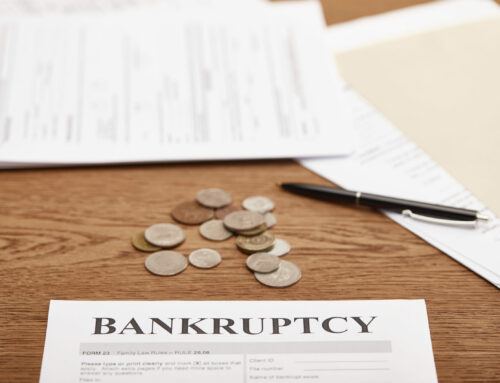
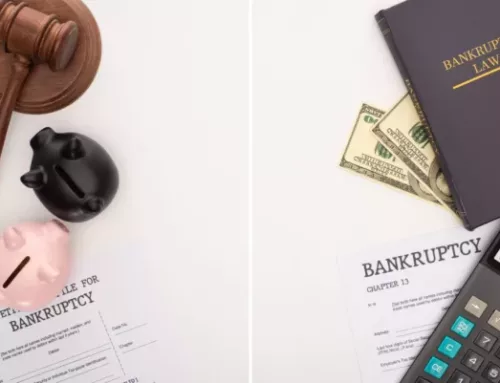
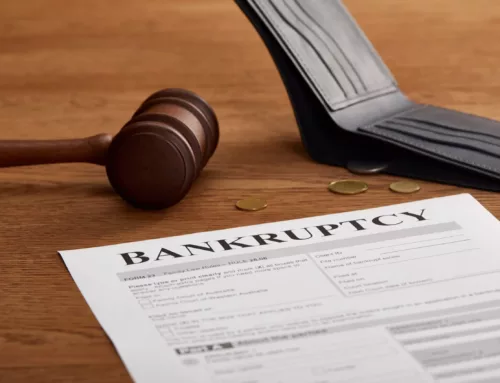
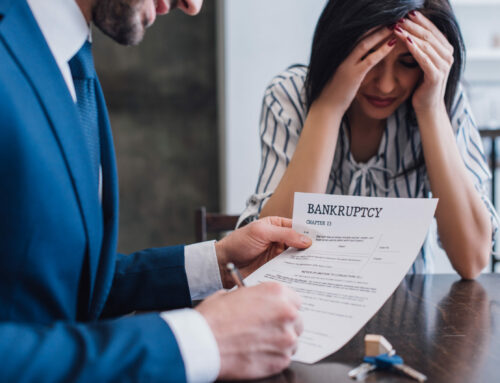

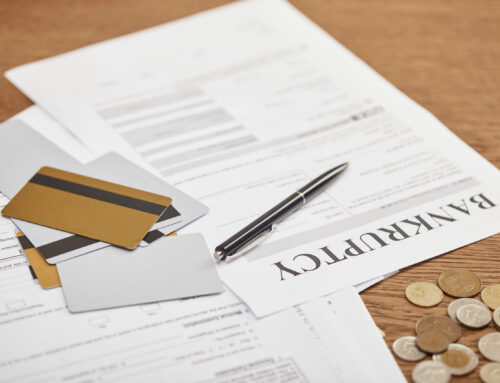

Connect with Us